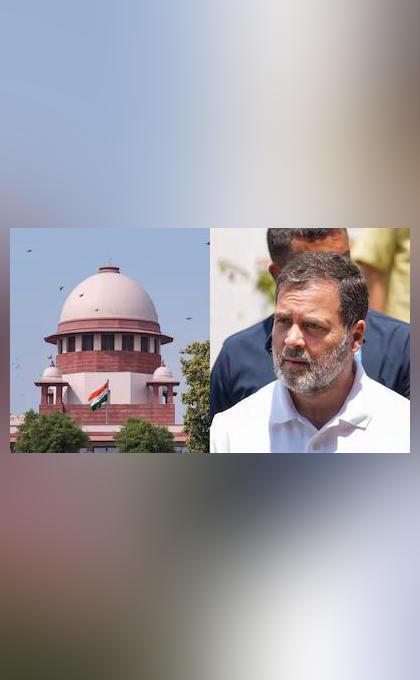
Why Ask on Social Media & Not in Parliament: SC to Rahul on ‘Land Grab’ Claim
In a recent development, the Supreme Court of India has rebuked Congress leader Rahul Gandhi over his claim that China had grabbed 2,000 square kilometers of Indian land. The court’s stern rebuke came while staying a defamation case against Rahul for his remarks about the Indian Army. The next hearing in the case is scheduled to take place after three weeks.
Rahul Gandhi’s remark, made in 2020, sparked a controversy and led to a series of legal battles. The court’s criticism of Rahul’s claim has raised important questions about the role of social media in disseminating information and the responsibility that comes with it.
In its order, the Supreme Court asked Rahul Gandhi how he knew that 2,000 square kilometers of Indian land had been occupied by China. The court’s skepticism was palpable, and it seemed to imply that Rahul’s claim was speculative and lacked concrete evidence.
The court’s rebuke has sparked a debate about the use of social media as a platform for spreading information. While social media has democratized access to information, it has also created a phenomenon where anyone can claim to be an expert and spread misinformation.
In the case of Rahul Gandhi’s claim, the court’s criticism is not just about the accuracy of his statement but also about the process of verifying information before sharing it with the public. The court’s questions highlight the importance of due diligence and responsible journalism in today’s digital age.
The Supreme Court’s criticism is also a reminder of the importance of Parliament as a platform for seeking answers from the government. Instead of making allegations on social media, Rahul Gandhi could have used the platform of Parliament to ask questions and seek clarification from the government.
In fact, the Congress party has been vocal about the need for greater transparency and accountability from the government. However, when it comes to seeking answers, the party’s leaders often prefer social media to Parliament.
The Supreme Court’s criticism is a wake-up call for all of us who use social media to disseminate information. It is a reminder that we have a responsibility to verify information before sharing it with others and that we must be careful not to spread misinformation.
In recent times, social media has been plagued by the spread of fake news and misinformation. The consequences of spreading misinformation can be severe, from damaging reputations to causing financial losses.
The Supreme Court’s criticism is also a reminder of the importance of fact-checking and responsible journalism. In the digital age, it is easier than ever to spread misinformation, but it is also easier than ever to verify the accuracy of information.
In conclusion, the Supreme Court’s rebuke of Rahul Gandhi’s claim highlights the importance of responsible journalism and due diligence in the digital age. It is a reminder that we must be careful not to spread misinformation and that we must use social media responsibly.






